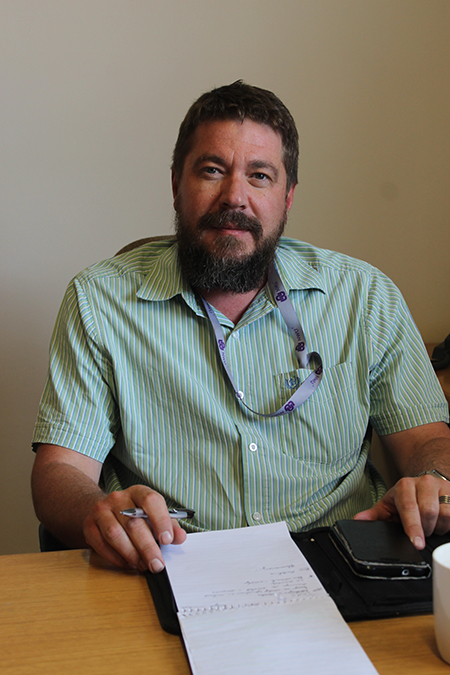It is important for the North-West University (NWU) to focus on critical community challenges in research – this makes research more relevant and useful to the community.
The emphasis has shifted increasingly from research of academic interest to research that communities can use. It is not about the number of research outputs – such as articles and conference papers – that the university delivers, but what communities can do with the results.
Prof Hendri Coetzee, manager for engaged research in the office of Sustainability and Community Impact at the North-West University (NWU), says that the ideal is for communities – from individuals to industry – to be able to use research to create or improve innovative products and services that will address their needs.
Outreach leads to research
He also says that community-engaged research is a collaborative process between the researcher and his or her community partner. Together they create and disseminate knowledge and innovation with the purpose of contributing to the well-being of the community and to the academic discipline concerned.
The value chain for sustainable community engagement begins with students who reach out through community projects, becoming aware of problems and needs, and investigating them or transferring them to academics. This then generates research that ultimately leads to innovation and problem solving, completing the value chain.
“This process forms the basis of community-engaged scholarship, which is one of the three critical elements – together with the ethic of care and social responsiveness– of the NWU’s overall strategy,” Prof Coetzee says.
“Universities are not removed from their communities. We are an integral part of these communities, and if we view community-engaged scholarship from an impact and sustainability perspective, it gives us the right of existence or ‘licence’ to work within communities. We bring knowledge to the development table to understand problems and challenges, as well as to find solutions for them.”
Prof Coetzee says that in the light of social accountability, research will have to become more relevant. Ideally, it should focus on the critical community challenges of the day.
Experts must tackle real problems
Some of these critical challenges are included in the sustainable development goals (SDGs) and plans of the United Nations, of the South African government and the provincial governments of North West and Gauteng. They are also part of the needs assessments that the NWU has conducted in the areas around its campuses.
“If universities address these challenges in research, it will probably have a greater and more meaningful impact than conventional research,” he says.
“The NWU has enough areas of expertise to tackle problems in the community in order to make meaningful contributions. We have already had many successes with service delivery, health and education, as well as work-integrated learning (WiL) and service learning, about which a lot of research has already been conducted by the NWU.”
WiL and service learning are types of training where students learn from delivering a service in a community.
“All these examples have not only addressed a need, but also benefited the university, as they led to research outputs and the training of students.”
Prof Coetzee says that, together with Stellenbosch University (SU), the NWU is the first to look at community involvement from an impact perspective (although SU calls it “social impact”).
“However, our institutional approach to community involvement is relatively unique in the South African context, because we also combine community impact with sustainability. This strategy is based on international best practices.”

Prof Hendri Coetzee.
